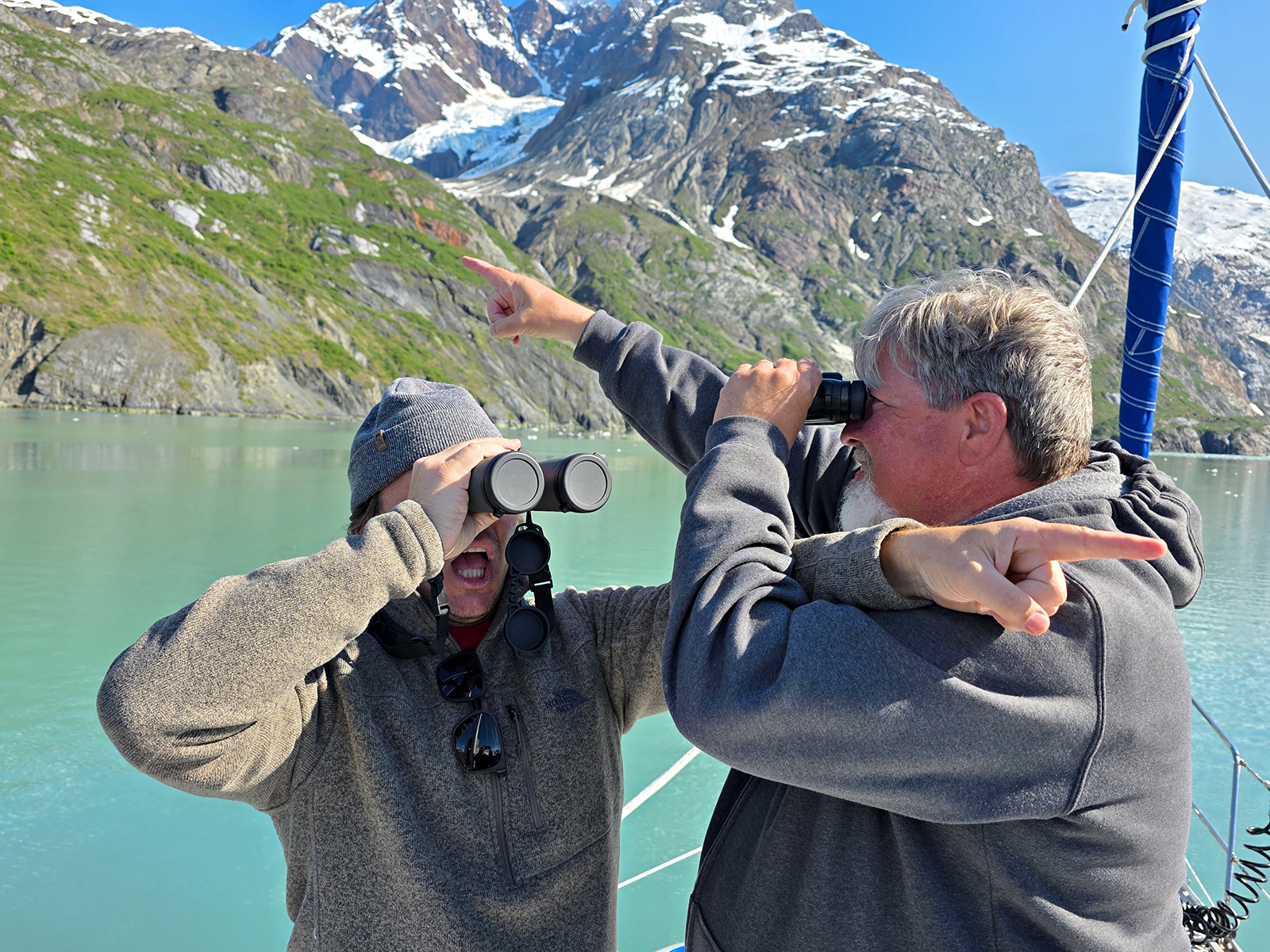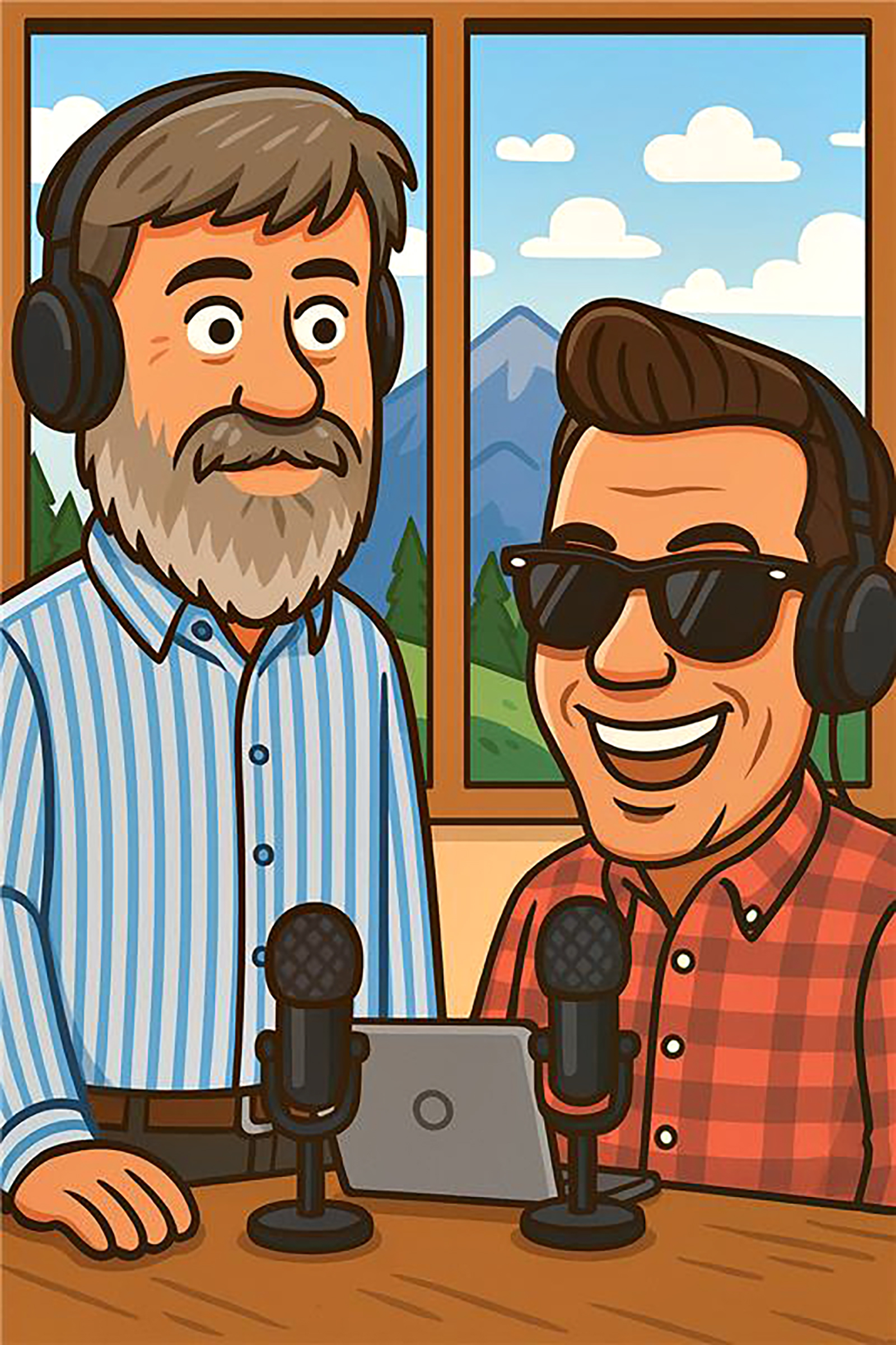Wilderness Wonks Get Deep in the Woods with New Public Lands Podcast
Bill Hodge, a Flathead Valley public lands advocate who has led several environmental stewardship organizations, hopes to move the conservation conversation beyond “hyper partisan politics”
By Tristan Scott
The existential threat to public lands and the federal agencies that manage them has grown to dizzying new heights this year. Using its flood-the-zone playbook during the first half of 2025, the Trump administration issued a flurry of new orders and initiatives ranging from workforce reductions at national parks and forests to the repeal of bedrock environmental rules.
In response, a diverse cross-section of the country has mounted a defensive battle to protect public lands, which comprise more than 35% of Montana’s landmass, galvanizing a unified front that’s defied partisan politics by lining up behind outdoor access.
The popularity of public lands even passed an important political litmus test in June when Montana’s U.S. House Rep. Ryan Zinke, the longtime lawmaker from Whitefish who served as Interior Secretary during Trump’s first term, emerged as the first congressional Republican to draw a hard line against a plan to sell off 2 million acres of federally managed parcels. Describing the sell-off provision contained in Trump’s tax-and-spending bill as “my San Juan Hill,” Zinke summoned Teddy Roosevelt and demonstrated that conservative conservationists could stick their neck out and survive, earning him plaudits from both sides of the political aisle.
At the same time, the White House’s offensive blitz on nuts-and-bolts environmental protections has overwhelmed the conservation community’s watchdog apparatus, which some say is outdated and ill-equipped to mount a counterinsurgency against the torrent of policy changes the Trump administration has unleashed.

Bill Hodge, a former media-executive-turned-conservation-advocate who lives in the Flathead Valley, said the assault on public lands, as well as the rising profiles of 21st century environmental campaigns, such as curbing climate change and reversing the erosion of Indigenous history, signal an inflection point for the wayward conservation movement.
“I get tired of the conservation community being hyper partisan and I do see opportunities for working across the aisle,” Hodge said in a recent interview. “For years I have watched the reframing of the narrative around wilderness. It’s no longer the same old black-and-white story pitting the extractive industry against the environmentalists. To understand all of these issues requires nuance. They can’t be captured in a 30-second soundbite. We need to go deeper.”

For Hodge, whose conservation bona fides include turns as executive director of the Bob Marshall Wilderness Foundation and as state director of The Wilderness Society’s Montana chapter, the logical next step in his quest to venture deeper into the new narrative shaping environmentalism was to launch a media company that traffics not in 30-second soundbites, but in 30-minute sound-buffets. Enter Wild Idea Media, a “project rooted in a big, enduring question: What does it mean to be human in a wild and changing world?”
“The idea came to me last June [of 2024] before we knew how the election was going to go, before we had any sense of how this flood-the-zone strategy would influence land management and environmental policy,” Hodge, who officially launched the project in October 2024, said.
At the heart of Wild Idea Media is “The Wild Idea Podcast,” where Hodge and co-host Anders Reynolds, who works at the Southern Environmental Law Center in Washington, D.C., sit down for long-form conversations with “thinkers, doers and big-question-askers to explore wild nature, human nature, and the messy overlap between the two.”
“We talk about everything from the legacies of conservation icons to the complicated realities of human-wildlife dynamics, and how decisions made in D.C. ripple all the way out to remote landscapes,” according to Hodge. “We ask who gets included — or left out — of the outdoor story, and we make space for voices that challenge what ‘wild’ even means.”
With creative and logistical wizardry from Laura Hodge, who is also Bill’s wife, and production and technical assistance from Holly Wielkoszewski, the team at Wild Idea Media has launched more than two-dozen episodes of “The Wild Idea Podcast” as of this writing. They’ve also introduced a second podcast called “The Wild Line,” which the website bills as a “short and sharp, to-the-point segment tracking what’s happening in D.C. and beyond — from public lands legislation and regulatory shake-ups to the big policy ideas shaping our collective future.”

Reynolds has emerged as the life force keeping “The Wild Line” fresh amid the shifting sandstorm of environmental politics in 2025. Having spent the majority of his career working at The Pew Charitable Trusts on wilderness and other protective designations, he continues to work in D.C. and is “on the Hill almost every day keeping track of everything that’s going on,” according to Hodge, who met Reynolds more than a decade ago after starting the Southern Appalachian Wilderness Stewards.
“It’s your weekly briefing on the laws, loopholes, and leadership decisions affecting wild places, and what you can do about them,” Hodge said.
“When I met Anders, he was so committed to this idea that conservation groups needed to stop parachuting into communities,” Hodge added of his collaborator. “They’d swoop in, get a wilderness designation and then leave, and the local volunteer trail clubs would be stuck wondering how they’re supposed to keep the trails open without using power tools. It’s a strategy that created a lot of bitterness. Anders insisted on engaging at the local level and building relationships with all the stakeholders, no matter their politics.”
So far, their strategy of diving deep into the weeds while appealing to wilderness wonks and building diverse coalitions appears to be working. With more than 40 episodes across both shows, Wild Idea recently surpassed 15,000 downloads.
“And those numbers feel good. They feel like a proof of concept,” Hodge said, describing a future for Wild Idea Media that includes a print publication and documentary filmmaking. “After the latest battle over public lands, people’s curiosity is piqued and we want to feed that.”
Some notable local guests on “The Wild Idea” have included Monte Mills, a leading expert on Federal Indian Law, tribal sovereignty and Indigenous cultural protection who leads the University of Montana School of Law’s Margery Hunter Brown Indian Law Clinic, and Martin Nie, whose work focuses on the governance of federal lands and collaborative management. Notable guests with national name recognition include Chris Wood, president and CEO of Trout Unlimited, who discussed the consequences of the repeal of the Roadless Rule, and Pulitzer Prize-winning journalist Bob Marshall.

Hodge said his bucket-list of dream guests includes Terry Tempest Williams, but he considers every interview that colors outside the lines of the conservation movement’s traditional doctrines a success — especially when they upend his own conventional beliefs.
“It’s getting easier and easier for people to pigeonhole public land management and prescriptions for wilderness as out of touch and in the way of modern forest management,” Hodge said. “I’ve watched and mourned the chiseling away of the idea of preservation, but I am not a forest watch guy. I am not a zero-cut guy. Am I willing to have my orthodoxy challenged. Absolutely. It makes my perspective deeper. Maybe this podcast challenges your perspective, maybe it changes it. Right now, it’s a passion project because we believe we have to get these stories out.”
Subscribe to The Wild Idea Media podcasts on your favorite podcast player and follow them on Instagram, Facebook, and Bluesky. The Wild Idea team also sends out a weekly newsletter with updates on the show: sign up for that list right here.